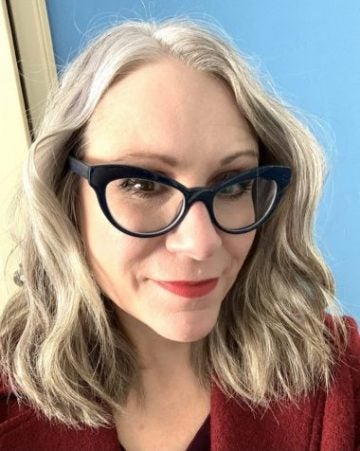insights
Functional Oncology: An Interview With Stacy D’Andre, MD, IFMCP

Read Time 3 Minutes
Stacy D’Andre practices integrative and functional oncology as the medical director for the Sutter Cancer Center in Sacramento, California. She blends traditional cancer care approaches with lifestyle-based therapies and supplementation to address potential barriers to recovery and remission, such as stress and anxiety.
Active in clinical research, she has conducted studies on the therapeutic benefits of the fasting and ketogenic diets on cancer patients, as well as the role of ashwagandha in mitigating the side effects of chemotherapy. Dr. D’Andre also leads virtual qi gong and cancer prevention classes.
Dr. D’Andre was recognized by Sutter Health for creating an integrative oncology unit in their hospital system and for her contributions in bringing a functional medicine approach to this critical population. IFM recently spoke with her about her practice and how functional medicine has shaped her approach to caring for cancer patients. Read the full interview below.
IFM: What inspired you to pursue oncology, and how does functional medicine fit into this field?
Dr. D’Andre: I have been practicing oncology since 2002. When I was a medical student, I found the science of cancer fascinating. However, what impressed me the most was my attending oncologists’ communication skills and relationships with patients. I also really liked the team-based approach to helping patients, working closely with surgeons, radiation doctors, and others. I had great mentors and role models. Functional medicine can play a much-needed role in oncology care; digging deep into the antecedents, triggers, and mediators and addressing them can make large differences in patients’ quality of life (QOL) and outcomes. For example, diabetes, obesity, and lack of exercise are all risk factors for many cancers, and improving these things has been shown to improve cancer outcomes. Also, by working on lifestyle changes, patients become very empowered to optimize their health.
IFM: How do you support patients who are in remission? Can you talk a little bit about your holistic approach to survivorship?
Dr. D’Andre: For patients in survivorship, we really work on fundamentals. Many times, patients still have lingering issues such as gut issues, weight gain, fatigue, poor sleep, neuropathy, etc. that we need to address. After that, we ask the questions: Why did they get cancer? What contributes to cancer? How can we change that? To answer these questions, you must look holistically, and the matrix is such a great tool to dig deeper.
IFM: The research you are conducting at Sutter is fascinating; clinicians and patients are exploring therapeutic fasting and/or the keto diet for chronic diseases, but we know that these eating patterns can also benefit cancer patients through improved mitochondrial function and cell recovery. What do you hope to achieve with these studies, and what are the potential benefits for patients?
Dr. D’Andre: It is important to conduct trials to test the feasibility, safety, and outcomes of these dietary approaches, as well as testing supplements. We hope that these studies will improve outcomes for patients. Diet studies are not easy—we have had trouble accruing to the keto trial for brain tumor patients, which may be more a reflection of this patient population. Fasting studies are also challenging because there is a lot of drop out. But it is still important to study these diets, as animal models and preliminary human studies look promising. I have some supplement trials coming up also, which I am really excited about. We are looking at using ashwagandha to help prevent chemo brain, and topical CBD for chemotherapy-induced neuropathy.
IFM: What impact do mind-body therapies (like qi gong) have on cancer patients?
Dr. D’Andre: Stress and anxiety are huge issues in our population. We know that lower heart rate variability is associated with worse cancer outcomes in retrospective trials/reviews. Stress and poor sleep can increase cortisol and inflammation, which can lead to worsened outcomes and decreased QOL. Techniques such as heart math, qigong, tai chi, meditation, [and] mindfulness have been shown to decrease anxiety, improve immune function, and improve QOL. More prospective studies are needed to see if these practices improve cancer outcomes.
IFM: What is one thing we can all do to reduce overall cancer risk?
Dr. D’Andre: Broccoli! That was the joke in our study cohort—if you do not know the answer, just choose broccoli. I think there is not one thing you can do to reduce cancer risk—you have to work on everything. Healthy, plant-heavy diets and exercise are absolute musts. Keep a lean, healthy weight, get good sleep, work on stress reduction, get rid of toxins, optimize gut health—it all matters.
Read more about Dr. D’Andre’s work at Sutter Health here: https://newsplus.sutterhealth.org/blog/2020/08/25/a-holistic-approach-to-cancer-care/
A congratulations is also in order! Dr. D’Andre recently informed us that she has accepted a position with Mayo Clinic Rochester, where she will build an integrative oncology program while continuing to conduct research and mentor fellow clinicians. In her words, “I am so grateful for all the support from IFM, especially Kristi Hughes, David Haase, and so many others that have supported me on this journey.”


